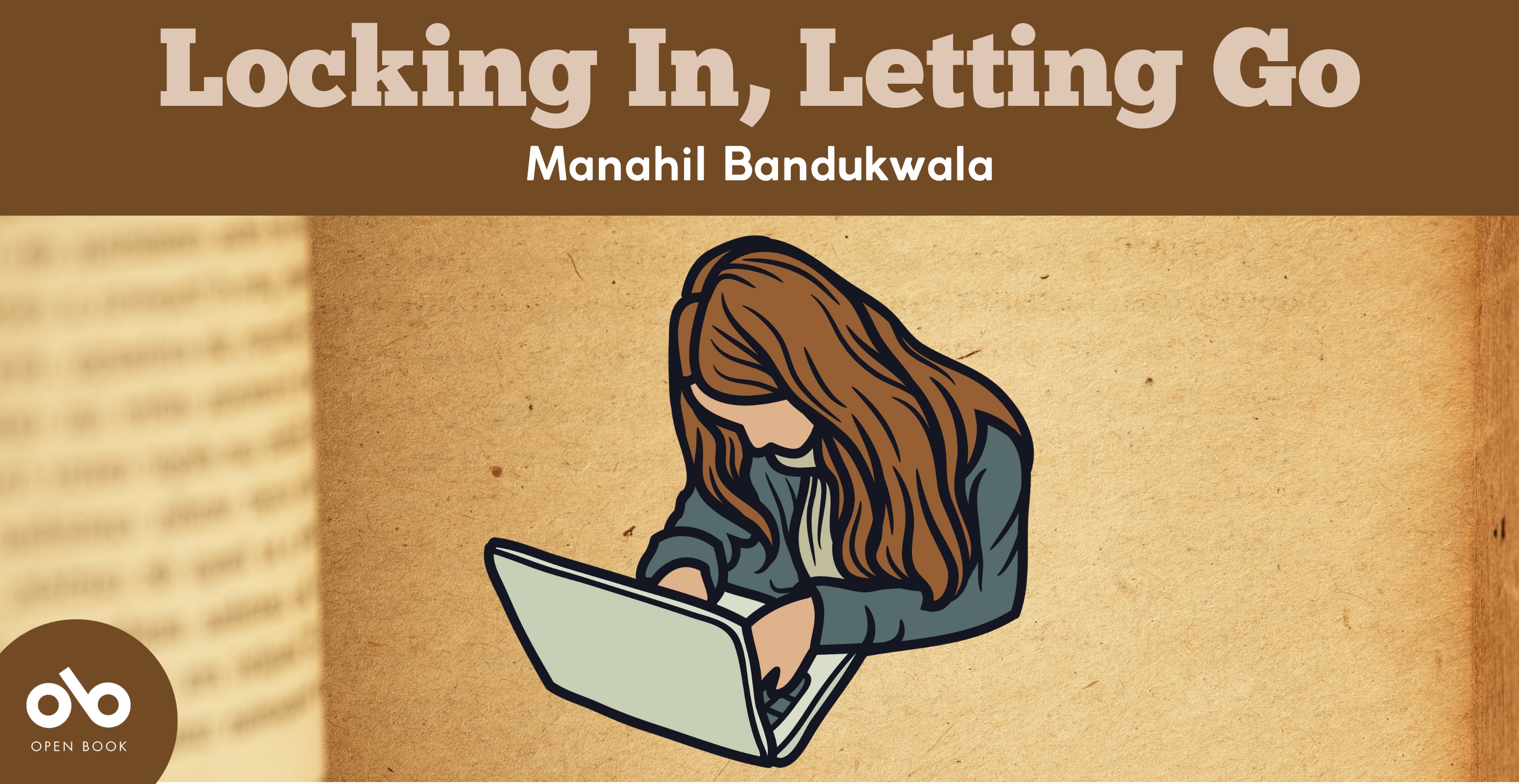Locking In, Letting Go
By Manahil Bandukwala
I’ve thought of myself as a writer who loves revision. I rewrote large chunks of my two poetry collections between the ‘final’ version submitted to my publisher, and the version that ended up being published. Somehow, I thought this tendency would carry over to my fiction writing as well.
I pivoted to short fiction from poetry about a year ago because I felt what I wanted to write about was better suited to the fiction genre. I wrote and wrote and wrote, going from drafts of half-baked stories to getting fiction acceptances in magazines I’ve long admired and respected. I saw themes emerging in my work, as my stories employed subtle magic in urban settings to explore interpersonal connections. With the help of some arts grants, I locked in and had a 50,000-word draft of 12 short stories.
I’ve talked to enough writers about their manuscript processes that I knew the first draft was far from the end. At the time of compiling the stories, it felt like a huge accomplishment—and it was! For a short while, I was able to unlock and focus on other things, like book tour events, reviewing new releases, embroidery, and crochet.
Locking back in has been a challenge. I know there’s work to do on the stories. Through my grant, I’ve been able to hire an editor. I’ve filled notebook and Word doc pages with revisions that need to be made. And yet, locking in to make those changes remains elusive.
Part of the difficulty of locking back in is what the editing involves. It’s not about cutting a word or two, swapping a paragraph, or adding a bit of dialogue to bring the whole story together. The work required on one of the stories in my manuscript involves rewriting it into something likely unrecognizable from the original version. Another story needs to shrink, to pare back from the wordiness. Another needs the antagonist brought out further. There’s no shortcut to revision, no magical way to make the perfect story from a compelling idea. I have to dive into the world of each story, to live with the kaleidoscope of characters, places, and magic, and make sure there’s a coherency that was missing in my first draft.
Your CanLit News
Subscribe to Open Book’s newsletter to get local book events, literary content, writing tips, and more in your inbox
My best revisions happen when I let go of the original conception of a story. Characters change, plots change, and the story continues to grow. It’s difficult to let go, especially in stories where I’ve already spent time with the characters and their journeys. But the most difficult letting go is with the words themselves. Sentences and cadences I’ve fallen in love with need to leave the story to make way for a narrative that is tighter and more cohesive.
It’s a funny thing to have writing—something I do out of enjoyment of the craft and a desire to say something about the world around me—also be something I have to force myself to do. Again, all writers experience this sense of dread in all stages of writing. But feeling this tug away from the thick of revisions makes me laugh. This manuscript is for no one but myself at this point. I could drop it and no one would care—except myself.
And perhaps this sentiment is a way to lock back in. Why am I trying to make this story as good as I can make it? Why am I closing plot holes, tightening character interactions, finding the perfect cadence for a sentence? And so, why do the work in halves when I can put everything I have into the writing, and feel a sense of accomplishment in myself at the other end?
The views expressed by Open Book columnists are those held by the authors and do not necessarily reflect the views of Open Book.
Manahil Bandukwala is a multidisciplinary artist and writer. She is the author of Women Wide Awake (Mawenzi House, 2023) and Monument (Brick Books, 2022; shortlisted for the Gerald Lampert Memorial Award), and numerous chapbooks. In 2023, she was selected as a Writer's Trust Rising Star. See her work at manahilbandukwala.com.




